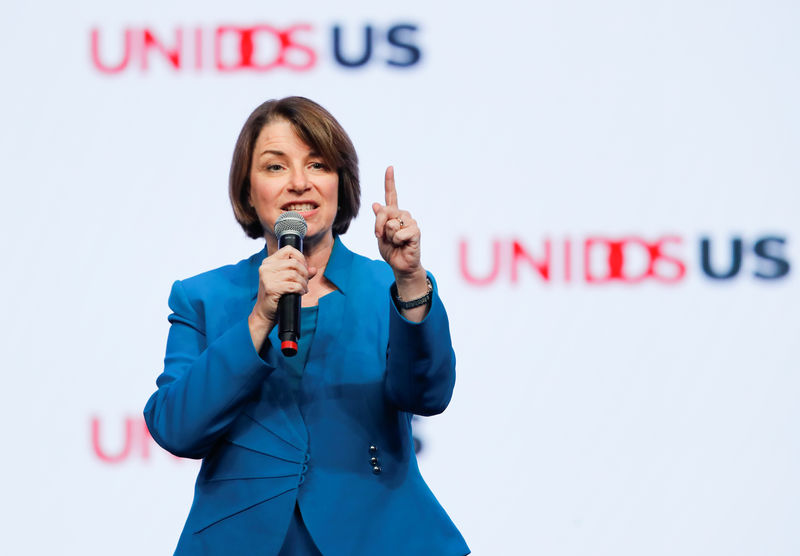By Sharon Bernstein
(Reuters) - U.S. presidential hopeful Amy Klobuchar on Wednesday will propose help for American farmers including looser restrictions on biofuels and student loan forgiveness, the latest effort by a Democratic candidate to woo rural voters who backed Republican Donald Trump.
Klobuchar, a senator from Minnesota, is one of two dozen Democrats seeking the party's nomination to face Trump in the 2020 presidential election.
In delivering a sweeping plan to support farming communities, she joins candidates including South Bend, Indiana, Mayor Pete Buttigieg, Montana Governor Steve Bullock and former Colorado Governor John Hickenlooper in reaching out to rural voters, many of whom favored Trump in 2016.
Klobuchar's plan, to be unveiled in a speech in the farm state of Iowa on Wednesday, would expand federal commodity price supports and federal crop insurance programs, while also promising to fight the consolidation that is eating up many small farms.
Without directly mentioning the tit-for-tat trade war the Trump administration is waging with China that has hurt many American farmers, she promised to lower barriers to agricultural trade and review all tariffs.
Her plan will also call for a loan forgiveness program for students who study agriculture and work in rural areas, according to a draft seen by Reuters on Tuesday night.
In addition to support for farmers, the plan also calls for repair of rural bridges and a modernization program for locks controlling the flow of water through the Mississippi river.
In a move that may anger environmentalists, Klobuchar also calls for allowing more ethanol, the automobile fuel additive made from corn, to be used in U.S. cars during the summer.
The high-level mixture was banned during the summer by the administration of former President Barack Obama because of air quality concerns. The Trump administration has moved to allow it, and Klobuchar said she would push for legislation to permanently keep more of the corn-based fuel in the mix.

Her plan also calls for improvements in rural health care and broadband internet access for all communities, both issues of longtime concern for residents who do not live in urban areas.